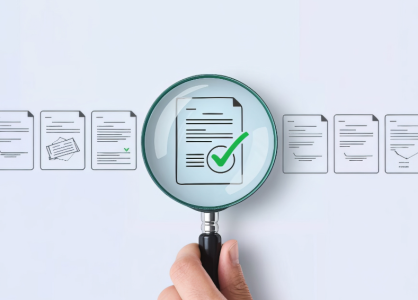Oversight Without Borders
In today’s interconnected global economy, businesses are increasingly operating across borders, navigating a complex landscape of varied legal and operational requirements. From multinational corporations to startups expanding internationally, managing governance across multiple jurisdictions has become one of the most challenging aspects of corporate strategy. The complexity of ensuring compliance, maintaining operational consistency, and addressing diverse regulatory frameworks is no small feat.
So, how do organizations maintain effective governance across multiple countries, each with its own legal environment, regulations, and business norms? Let’s explore the challenges of cross-border governance and how businesses can address them effectively to ensure smooth operations worldwide.
The Complexity of Cross-Border Governance
As companies expand into new markets, they often find themselves juggling multiple regulatory frameworks and legal systems, each with its own set of rules. While some regulations may overlap, others might conflict, making it difficult for businesses to create a standardized governance approach. Some of the key challenges include:
- Varying Legal Requirements: Different countries have different rules regarding corporate governance, tax laws, environmental regulations, data privacy laws, and financial reporting standards. For example, a company based in the United States must comply with the Foreign Corrupt Practices Act (FCPA), while a business in the European Union must adhere to the General Data Protection Regulation (GDPR). Navigating these differing legal landscapes requires a deep understanding of each jurisdiction’s regulations and an ability to adapt.
- Cultural and Operational Differences: Beyond legal frameworks, cultural differences can also influence governance practices. For instance, governance structures and decision-making processes may vary significantly across countries. What works in one country may not be suitable in another due to different business cultures, employee expectations, and management practices.
- Communication and Coordination: Managing operations across multiple jurisdictions can also lead to communication barriers and coordination issues. Time zone differences, language barriers, and a lack of local knowledge can hinder decision-making and slow down processes, affecting governance efficiency.
- Compliance Risks: Operating in multiple jurisdictions increases the risk of non-compliance, whether intentional or inadvertent. Failing to comply with a local law or regulation can result in severe penalties, legal actions, and damage to a company’s reputation. Ensuring compliance across different regulatory environments requires careful monitoring and constant updates to governance policies.
Managing Cross-Border Governance
Despite these challenges, businesses can implement several strategies to streamline governance across multiple jurisdictions and ensure they meet legal and regulatory requirements consistently. Here are some approaches:
- Centralized Governance Framework with Local Adaptation: One way to manage governance across borders is to establish a centralized governance framework that provides a consistent approach to compliance, ethics, and operational efficiency. This framework should be flexible enough to adapt to the local laws and regulations of each jurisdiction. For example, businesses can create a global governance policy but adjust specific rules and practices to fit the legal and cultural requirements of each country.
- Leverage Technology for Monitoring and Reporting: Technology can be a game-changer in cross-border governance management. Automated tools and digital platforms can help businesses monitor and track their compliance with different regulations in real time. These technologies can streamline reporting, audit processes, and ensure that all necessary documentation is easily accessible and up-to-date. This reduces the risk of non-compliance and improves operational efficiency.
- Local Expertise and Advisory Networks: Engaging local experts in each jurisdiction can provide valuable insights into specific regulatory requirements and local governance practices. Establishing a network of legal advisors, consultants, and local compliance officers can help businesses navigate the complexities of each jurisdiction and ensure that they remain compliant with local laws.
- Training and Education: Regular training and education programs for employees at all levels are crucial to maintaining effective governance in a cross-border environment. By educating employees about the legal requirements, ethical standards, and governance practices specific to each region, businesses can ensure a consistent approach to compliance and risk management.
- Regular Audits and Risk Assessments: Cross-border governance requires continuous monitoring and risk assessments. Conducting regular audits of business practices in different jurisdictions helps identify potential risks and gaps in compliance. By addressing these issues proactively, businesses can prevent costly fines, reputational damage, and operational inefficiencies.
How MPG Helps Manage Governance Across Jurisdictions
Managing governance across multiple jurisdictions is no easy task, but it is essential for businesses operating in today’s global market. My Premium Governance (MPG) provides organizations with the tools and resources they need to navigate this complex landscape effectively.
MPG’s platform helps businesses develop and implement robust governance strategies that ensure compliance across different countries and legal systems. With customizable governance frameworks, real-time monitoring, compliance tracking, and risk management tools, MPG equips businesses with everything they need to maintain consistent governance standards across jurisdictions.
By centralizing governance processes and integrating technology, MPG helps organizations streamline operations, reduce risks, and adapt to the ever-evolving regulatory environment. Whether you’re managing a multinational corporation or expanding into new markets, MPG provides the support you need to ensure compliance and uphold high governance standards worldwide.
The Future of Cross-Border Governance
As the global marketplace continues to grow and evolve, cross-border governance will only become more complex. However, by adopting a proactive approach and leveraging the right tools, businesses can navigate these challenges and ensure that they are operating ethically, legally, and efficiently across jurisdictions.
At MPG, we are committed to helping organizations overcome the challenges of cross-border governance, enabling them to manage their operations consistently and effectively, no matter where they are in the world.
Ready to manage governance without borders? Let MPG be your guide to navigating global compliance and operational excellence. 🌐✨

